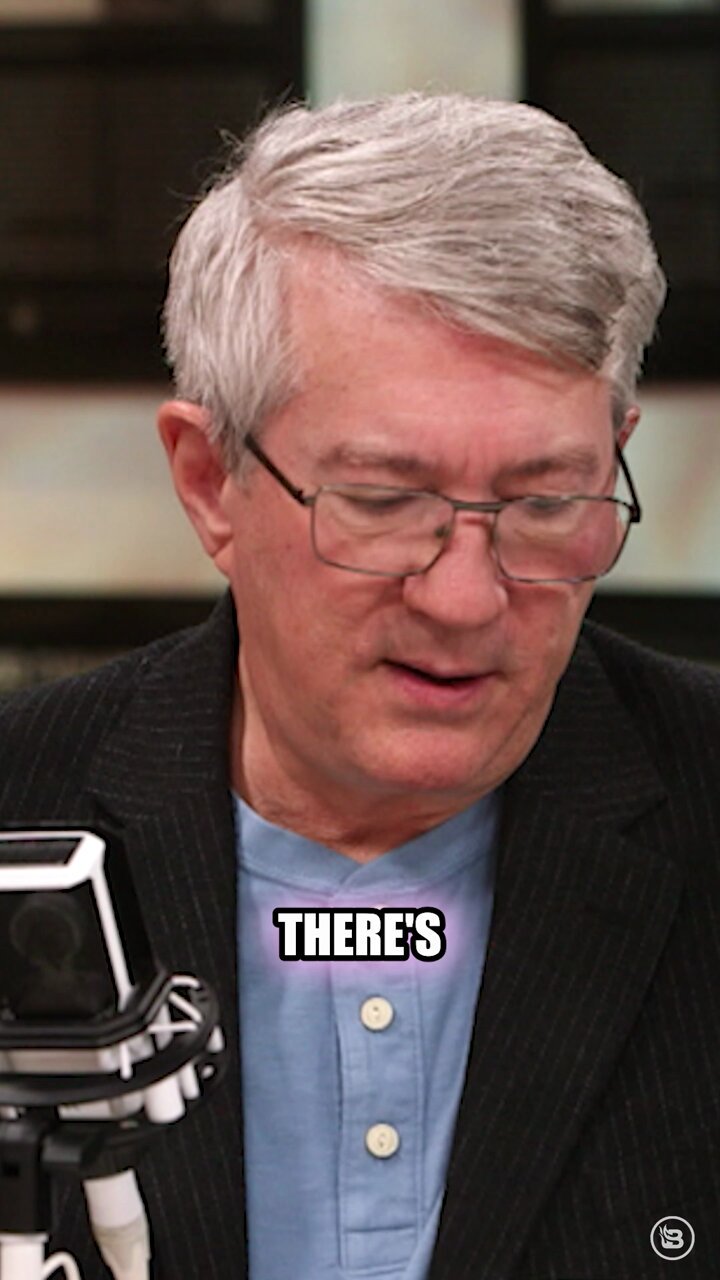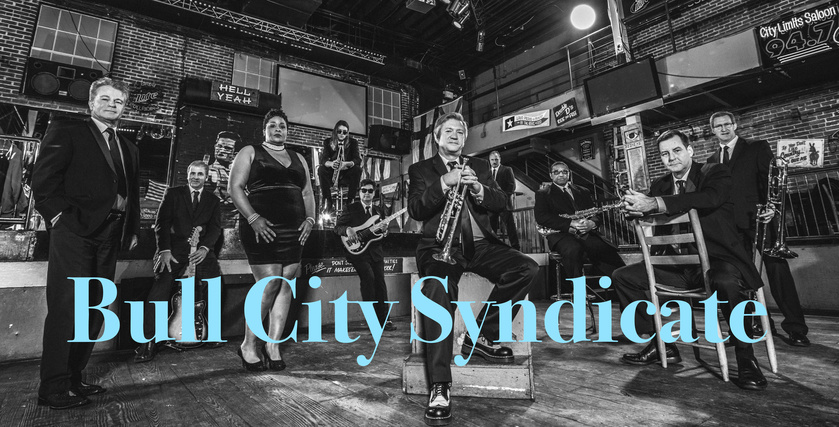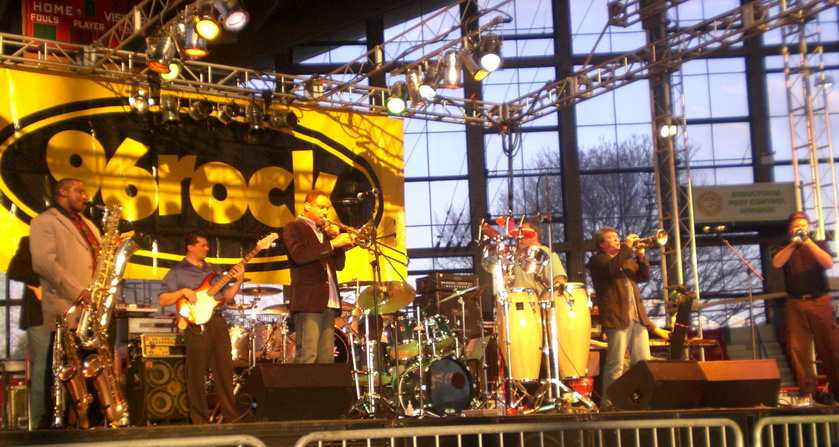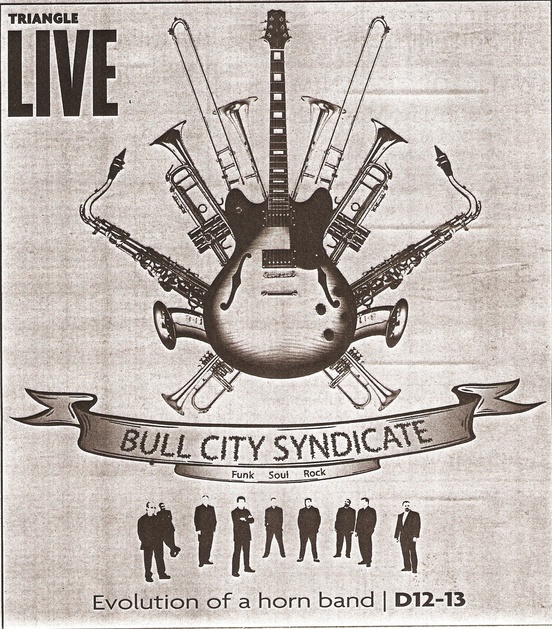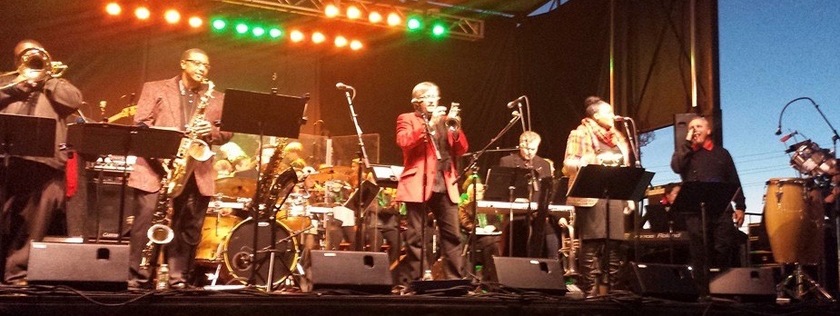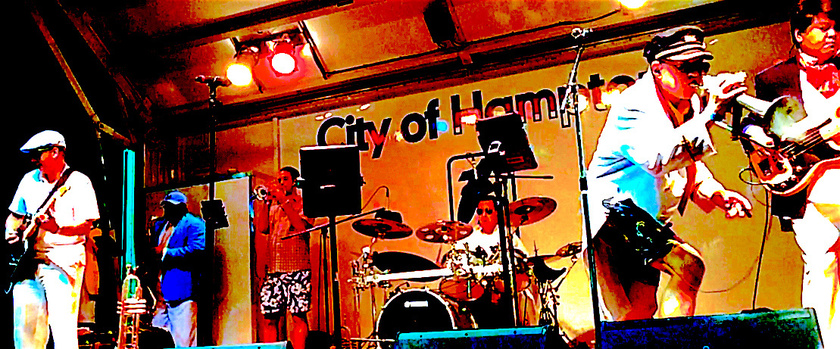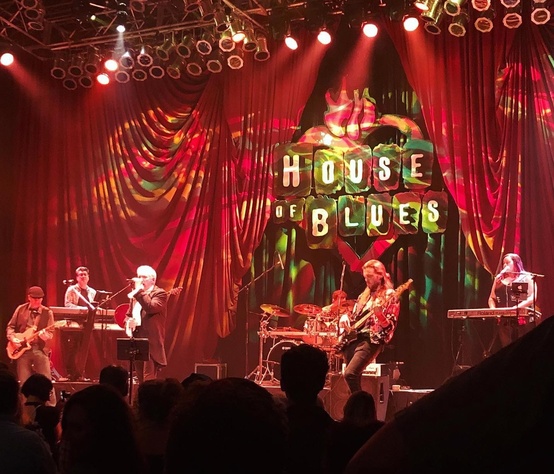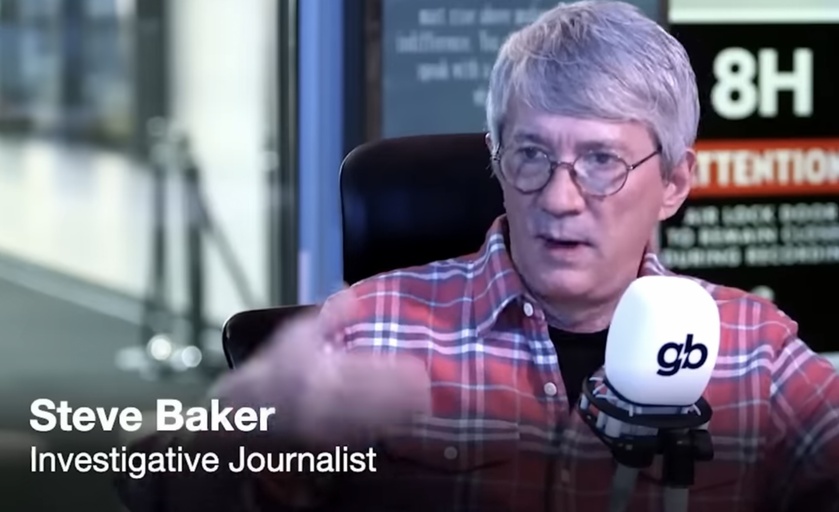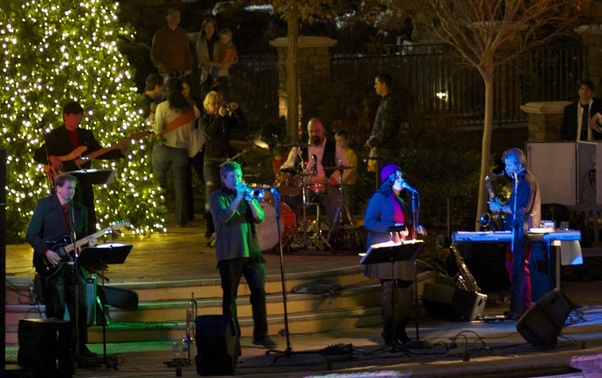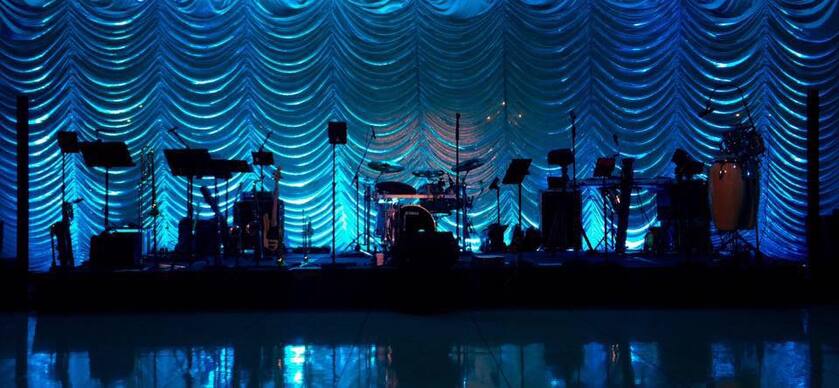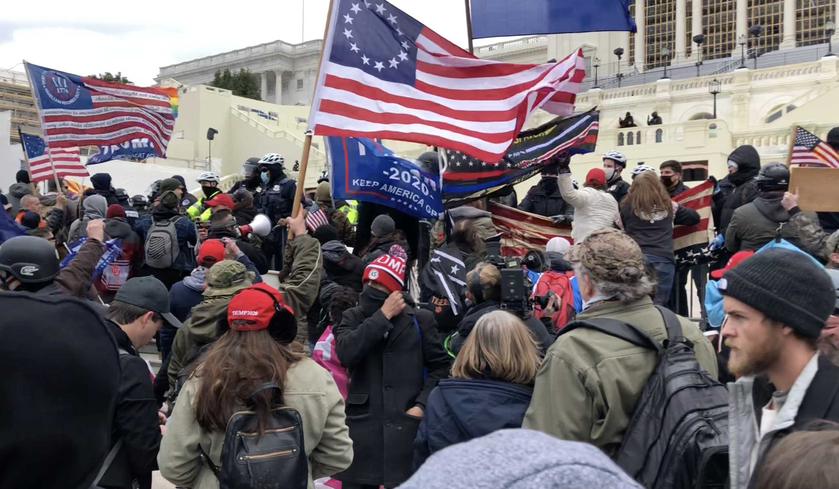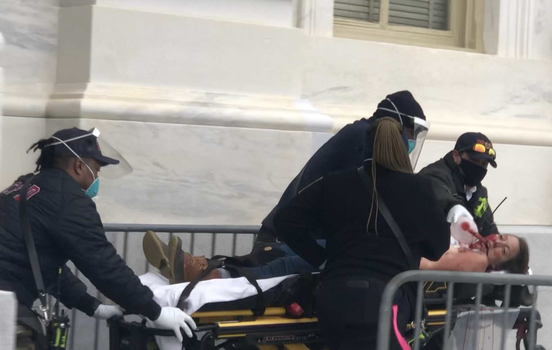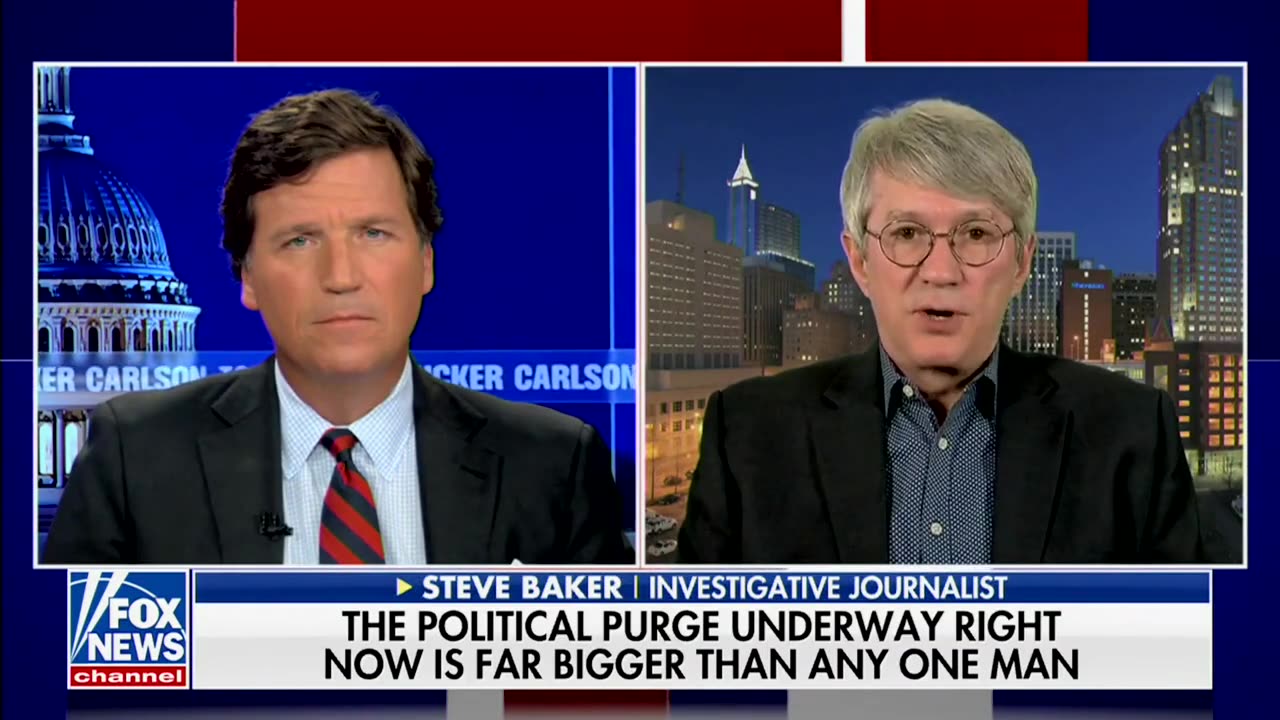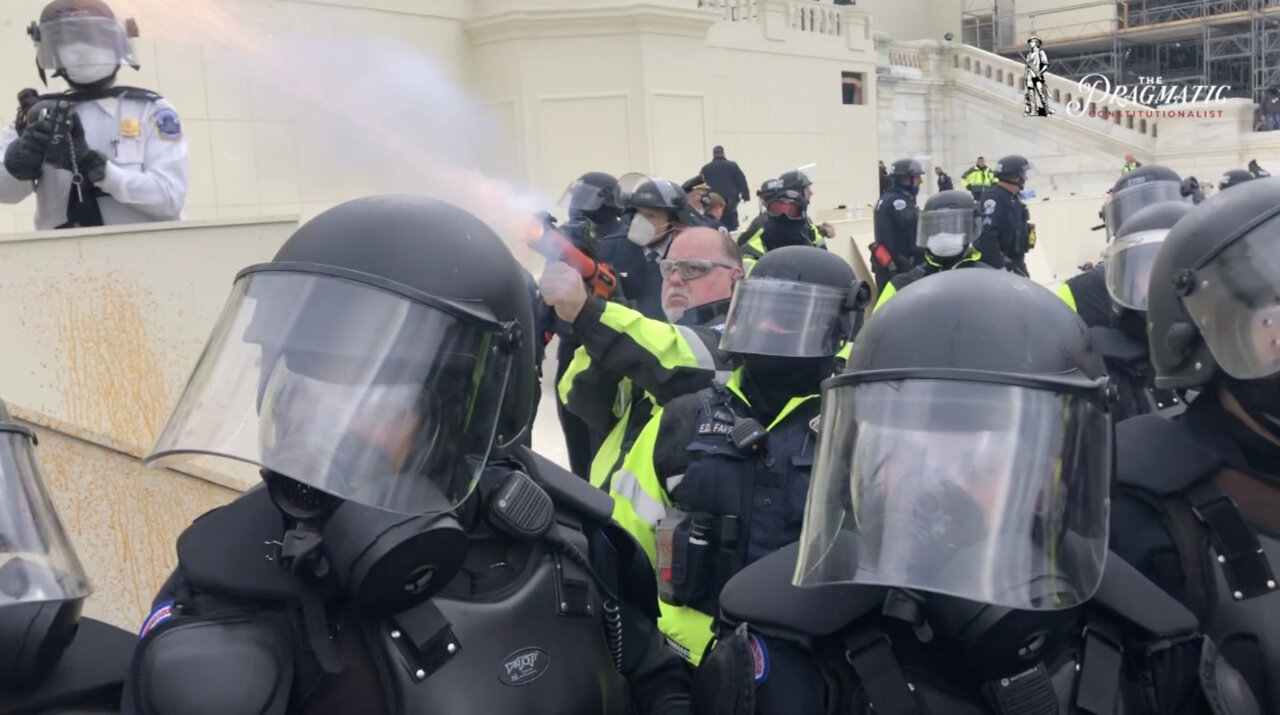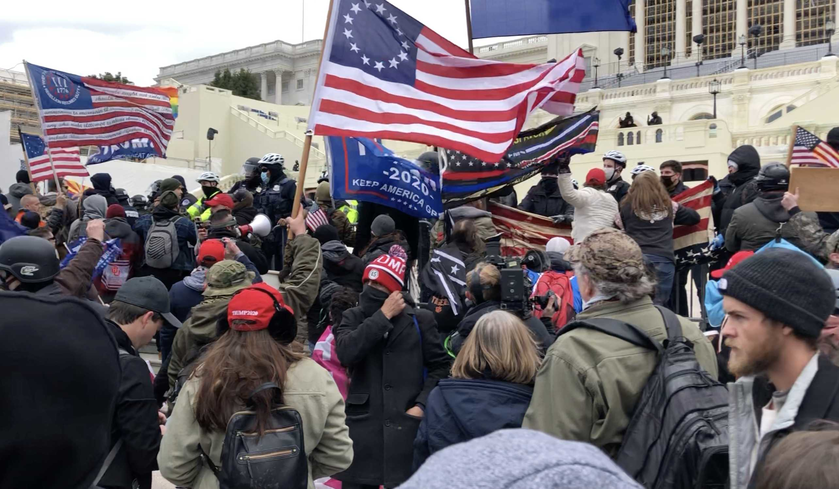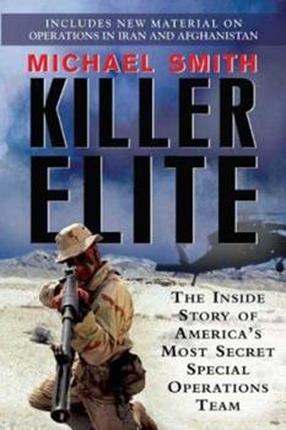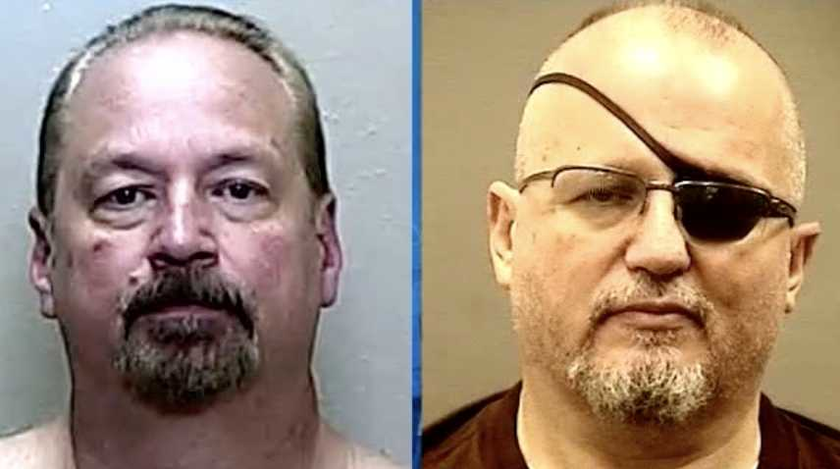
As I usually state when posting these Tweetstorm rollouts, here they are, “warts and all.” I’m not a professional courtroom reporter, and given my blazing 20-words-per-hour typing speed, (ha), I’m not even attempting to to give verbatim transcriptions. These are overview paraphrases, for the most part.
Also, the first day - Wednesday, the 24th - of the Oath Keepers “omnibus” hearing was held in the DC District Court’s large ‘Ceremonial Courtroom.’ As such, there was no video or audio feed from that courtroom to the media room, so we could live tweet from there, as no electronic devices are allowed to be used, or even turned on. So, I’m going to begin with a quick overview of my notes from Wednesday’s hearing, before proceeding with the Tweetstorm rollout.
Oath Keepers Omnibus Sentencing Hearing - May 24, 2023
On Monday the 22nd, Judge Mehta vacated Thomas Caldwell's sentencing hearing, while he considers his motion to acquit. Caldwell was the only of the 5 original OK defendants to not be convicted of either of the 3 conspiracy charges. Mehta says his sentencing hearing will be scheduled at a later date, but this action will not affect the sentencing of the other defendants from that trial.
Today’s hearing will involve “impact statements” pertaining to the first two OK trials. Those convicted defendants attending in the courtroom are Stewart Rhodes, Kelly Meggs, Jessica Watkins, and Kenneth Harrelson. (They are wearing orange prison jumpsuits.) Joseph Hackett and Roberto Minuta - convicted in the 2nd OK trial - attend via Zoom. (Both of these wearing suits and ties.) Other defendants from that trial have waived their right to appear.
For the government, AUSA Troy Edwards opened with the typical, January 6 was an “attack on our democracy’ rhetoric.
He was followed by the first impact statement from DC Metro Police Officer Christopher Owens. He recounts his harrowing day, the attacks and violence he and other officers suffered, and the reunion he had with his family after a nearly 24-hour shift. His was a very tearful and emotional statement, which also contained this line:
“Oath Keepers chose to participate in a violent attack on the Capitol and police officers.”
Which, of course, is not an accurate portrayal of the actions of most of these defendants. Only Jessica Watkins engaged in a push-and-shove scrum with a group of MPD officers in the hallway leading to the Senate. Something for which she admitted to in her trial, and accepted full responsibility.
Edwards then read impact statements from other officers not present.

(Source: Library of Congress)
USCP Special Agent David Lazarus, (who oversaw the protection of Speaker Pelosi and her staff) rose to al tearfully recount his memories of J6. Even though he testified in the trial to witnessing a “confrontational” interaction between OKs and Ofc. Harry Dunn, Lazarus made no mention of that event in his statement. (Interestingly, that testimony does not comport with the video evidence. Capitol CCTV shows he was in a different location at the time of the OKs interaction with Dunn. No other evidence has ever corroborated that testimony.)
Next up was USCP Officer Harry Dunn. He says, “Since January 6, I have told the truth about what happened that day . . . “ (Those who have followed my coverage, know I’ve shown the many inconsistencies of his trial and Congressional testimonies, to the video evidence we’ve seen.)
Dunn said that because of the “lies’ now being told about him, he has to “watch his back every day.” Says that he use to love his job, but now dreads going to work. He then stared at the four defendants present when he talks about his fear each time he now sees anyone in tan pants and/or wearing tactical gear. He continues to get therapy for his J6 PTSD and says the events of that day turned him from “an extrovert into an introvert.”
“Why am I and my fellow officers still called liars and traitors?”
(He obviously doesn’t address the fact that many of his fellow officers themselves call him a “liar,” regarding much of his testimony about what he did and saw on J6.)
Next up was Nancy Pelosi’s chief of staff, Terri McCullough. This is an interesting testimony - meant to buttress the claim that the OKs were a threat to Pelosi and her staff, though no real evidence was ever presented of any such action to that effect. She mostly spent much of her time recounting the violent actions attributed to everyone else besides the OKs present. Much of what she recounted happened before the OKs were even on the campus, including speaking of the “officers” (plural) who died. Again, something for which the OKs had no part.
If I’m being completely frank, nothing in her recounting had anything to do with the defendants in this case.
The attorney for Minuta (and several other J6 defendants, including the QAnon Shamen), rose to state that Lt. Tarik Johnson - who was anticipated to make a statement on behalf of the OKs today - had changed his mind due to his fear of retribution by the USCP and DOJ after the arrest of Shane Lamond, a 24-year veteran of the MPD, because of his accused interactions with the Proud Boys.
After the morning break, Judge Mehta began to address several defense motions - siding with the DOJ objections on all of those. He then went into a long litany of recalling and reciting many of the “scary words” that had been written by OKs in their chats and calls in the months leading up to J6. Over and over again he said, “A reasonable jury could reasonably conclude . . .“, as he dismissed defense motions and justified the coming sentencing enhancements asked for by the DOJ.
After lunch, was much of the same:
More scary words read . . .
“A reasonable jury could reasonably conclude . . .”
“Motion denied.”
Now, to Thursday’s Tweetstorm of Stewart Rhodes’ and Kelly Meggs’ sentencing hearings . . .
Stewart Rhodes Sentencing Hearing - May 25, 2023

9:30 am - Stewart Rhodes entered the courtroom wearing the orange prison jumpsuit. By contrast, his attorney, the central Louisiana southern gentleman Ed Tarpley, is attired in a white linen suit.
Tarpley told me last night, that after yesterday’s hearing, he approached Judge Mehta and told him that he was praying for him. That he couldn’t imagine having to bear the weight of responsibility that was before him in these next two days of Oath Keeper sentencings.
——
Judge Mehta enters the courtroom at 9:39 am. He begins by addressing the sentencing enhancements. Skipping over the legal ramblings and citations, with regards to the enhancement requirements, they are met. This applies to . . .
“Substantial interference of the due administration of justice” and “the other matters.” (Which one must assume to include the “terrorism enhancement.”)
——
Mehta discusses more technicalities, restitution considerations, and additional objections by Rhodes’ defense counsel. In the process, he recites - again - words and statements made by Rhodes in OK chat groups that indicate he believed the election was stolen . . .
. . . and if Trump would invoke the insurrection act, they would use their weapons at the Virginia QRF. Metha continues to read the “scary words” of Rhodes before J6 and after J6. (We should have used rifles.)
As has been pointed out by myself on many occasions, Mehta once again that this trial and these convictions have been based on “scary words,” and not on the actual behaviors, actions, or lack of explicit orders from Rhodes or other OK leadership to overthrow the government or stop election certification.
While Mehta agrees that Rhodes’ made legal purchases of firearms on the way to DC and on his way back to TX after J6, it was clear that Rhodes intended to use those weapons against the government of the United States.
Mehta says Rhodes’ speech with regards to “seditious conspiracy” is not protected speech by the 1st Amendment. And the preponderance of that speech presented in the trial showed that Rhodes intended to prevent Biden from taking office.
——
AUSA Rakoczy rises to make the point that Rhodes and the other OK defendants’ actions on J6 meet the requirements to require restitution . . . even though they did no property damage. As to “relevant conduct” . . .
She literally said . . . because the two groups of OKs “breached” the Capitol and they were “wearing tactical gear” and some were carrying “some kinds of weapons” they meet the necessary requirements to meet the costs of government expenditures to repair Capitol damage.
Of course, the OKs did no property damage. The video evidence clearly shows that to be the case. But, even in the trial, a representative from the Architect of the Capitol was brought in by the government to make a point about the repair costs of the east Capitol door through which the OKs did walk. A door upon which they never so much as laid a hand, and weren’t even close when the door was pushed open and the windows were broken.
——
Rakoczy addresses the specific hierarchy structure of the OKs on J6. For instance, Dolan reported to Harrelson, who reported to Meggs, who reported to Rhodes . . . and other examples. She conspicuously makes no mention of “Whip” Michael Greene - who was the “operational leader” for the OKs’ security details on J6. Perhaps because Greene wasn’t convicted of any felonies for his actions. How can this be, considering Greene was operationally in charge of ALL OKs on the ground and answered directly to Rhodes?
For instance, Harrelson was told he’d be “ground team leader” - by Meggs when Meggs called him on J3 to participate in security details on J5 ad J6. In function, Harrelson had no leadership position and answered directly to Greene. Again, Greene has avoided a felony conviction. The only of the OKs to have done so. His lack of mention here, by the government, is conspicuous to those of us paying attention to what is NOT being said in this courtroom.
——
Rhodes’ Attorney Lee Bright begins arguing against certain elements of what was put together to create to the “conspiracy” charge. Bright now brings up both Greene and Dolan’s testimony that when Rhodes was informed by Meggs that they went into the Capitol, Rhodes’ replied, “That was fucking stupid.”
To be clear, Dolan was the government’s own cooperative witness and revealed Rhodes’ reaction under AUSA Nestler’s redirect examination. This removes the contention that there was any plan or any orders from Rhodes for Meggs to lead the OKs into the Capitol. This includes the NEVER PROVEN connection of an attempted phone call between Meggs and Rhodes just before the first group of OKs entered the Capitol.
Mehta points out that it’s one hell of a coincidence in timing that the infamous - NEVER PROVEN phone call connection - resulted in Meggs leading the OK group inside.
Bright counters that the government’s own PROOF of Rhodes’ admonishment of Meggs for entering the Capitol trumps the “coincidence.” Bright continues to point out that Harrelson and Dolan had NO communications from Meggs or Rhodes, and couldn’t have known where to be at that “coincidental” moment. He further points out the high degree of the unlikelihood that Meggs could have possibly known WHEN those east doors would open . . . as initiated by others with whom the OKs had no relation, and for which the government never attempted to make a connection in their case.
Rhode’s other attorney, Phil Linder, rises to expound further on Bright’s points. He continues to say that if Rhodes really wanted to take over the government and stop the certification, why did Rhodes not activate the 35-40,000 members of the Oath Keepers organization, and why would they leave their guns across the river in Virginia?
Linder points to the absurdity of Rhodes - a military guy . . . and Greene - a military guy . . . ordering a rag-tag group of a dozen unarmed guys to enter the Capitol to stop the election certification. The fact is . . . even if you believe an unproven phone call order from Rhodes to Meggs happened . . . you’d have to believe an unlimited stream of absurdities that followed:
Those OKs had no connection to the mob who actually breached the Capitol, broke windows, opened doors, etc. They assaulted no officers and did no property damage, but they are somehow the conspirators?
Yes . . . Rhodes wanted the election stopped. Yes . . . he wanted no Biden administration. But, he did nothing to stop either. That the government and jury have basically determined and set a precedent that conspiracy can exist solely on a “wink and a nod,” without any evidence of an actual plan.
Bright returns to the lectern to address the “terrorism enhancement,” and reiterates the terrifying specter of this “wink and a nod” precedent for establishing a seditious conspiracy being set in this case.
Tarpley approaches to make the point that there was technically no way for Rhodes or the OKs to stop the certification of the election because the processes and procedures already exist on how to proceed in the event of a disruption or interference of any kind.
Tarpley also makes the point that nothing in Rhodes’ behavior or orders on that day proved the intent of conspiracy. he also points to the fact the government also never presented evidence of explicit conspiracy.
Mehta announces a 15-minute break.
——
Mehta returns at 11:20 am. He immediately restates the facts that Rhodes was convicted by a jury for seditious conspiracy and restates that everything he addressed yesterday was based on a preponderance of the evidence. He firmly makes the point that HE finds the evidence to be solid.
“The evidence shows that Rhodes used violent imagery and words . . . “ to make comparisons of J6 to other revolutions where force was used to impose political views or overthrow governments.
Mehta believes the only reason Rhodes told everyone to delete their messages and chats and to then “shut the fuck up,” is clear evidence of his desire to cover up the conspiracy. Mehta says he believes it is reasonably foreseeable that Rhodes had the intent to send his troops into the Capitol and stop the election.
Mehta says it is not plausible that Rhodes had any other intention but to bring his people to the Capitol to stop the certification. “No doubt in my mind.”
Mehta does admit that Mr. Dolan’s testimony caught everyone by surprise and that it would be reasonable for a juror to be challenged by that testimony. Mehta says, “It is hard for me to believe that Kelly Meggs would not have cleared it with Rhodes” before entering the Capitol.
This, despite both Dolan’s and Greene’s testimonies that Rhodes openly chastised Meggs by saying, “That was pretty stupid.” Mehta even reads the transcripts from Dolan’s and Greene’s testimony to validate that, but says Rhodes never admonished the group as a whole, on any chats or messages for that “stupid behavior,” and says it’s clear Rhodes had no regrets about what happened, and then initiated the cover-up by ordering the deletion of messages.
Mehta believes Rhodes had established a real threat to the government and members of Congress, including actions of others that resulted in the injuries of certain Capitol Police and Metro Police officers. He reads the names of several officers who were injured in the “presence” or “vicinity” of those officers.
He also says that when members of Congress and their staff were “cowering in fear” for a period of time while OKs were “in the vicinity” justifies the sentencing enhancements.
He believes planning and coordination were exhibited by the formation of those infamous “stack formations” of the OKs before entering the Capitol. And for not the orders and directions of Rhodes, none of those other defendants would have come to DC on J6 or taken the actions they did. All of these justify the varying levels of sentencing enhancements.
Mehta says the 6 levels of terrorism sentencing enhancement are appropriate. And will also apply proportionately to other defendants in this case . . . because the objective was to use intimidation and coercion by means of force.
Mehta goes into consideration of reasons for “departure” from the guidelines. He is going through each charge and conviction, adding the enhancements, and subtracting the few departures.
——
AUSA Rakoczy rises to state the government is asking for 25 years imprisonment for Rhodes. She reviews the major highlights of the case and specifically makes the case that Rhode’s conspiratorial mindset not only manipulated his followers into taking on violent and revolutionary actions.
This also proves that given the opportunity, he would lead another attack against the government if given a chance.
The court must therefore impose a sentence of 25 years.
Phil Linder rises to say that he doesn’t believe anything he or other counsel can say will change Mehta’s “already determined” sentencing. Nor can they present any witnesses that will change his predetermined sentencing.
Linder makes the case that Rhodes did not “cause J6” to begin or take place and that he did not create the circumstances that caused J6. (Even says to Mehta, “You’re smart enough to know this.”)
The evidence shows Rhodes did not cause J6, or he would have brought 30,000 Oath Keepers, instead of 30. The face of J6 is “Trump.”
Linder makes examples of other J6 defendants and their sentences, who had long criminal histories and who assaulted officers, but got sentences of 14 years or much less. Asking does the person who “plans a crime” but doesn’t execute it, deserves a more severe sentence than someone who doesn’t plan a crime but actually assaults people.
Linder makes the point, (which was not well made during the trial itself), that there was no coordination with Rhodes by the people who did violently breach and attack Law enforcement that day. Linder asks Mehta to sentence Rhodes to less than 60 months, as has been given to actual violent defendants.
——
Stewart Rhodes rises to say that he is a “political prisoner.” And that this is an ongoing process to shut down political speech. He makes the point that many of those in other protests, like ANTIFA, who made open attempts to interrupt the transfer of power to the Trump administration were never prosecuted for their words or violent actions.
Rhodes describes why OKs provided escorts and security at many political rallies across the country … because left-wing protestors and Antifa were violently assaulting peaceful protestors.
He makes the point that at hundreds of events, the OKs never used violence or force to deter violence, and were never charged with any crimes at any other events. They wore body armor because Antifa throws bricks, frozen water bottles, and uses knives.
On J6, he did not go inside the Capitol building, and had just spoken that morning at a Latinos for Trump rally, and was then going to be at another event on the Capitol grounds in Area 8 - as permitted by the USCP - and he was trying to find the people who were NOT still on tasks doing security after all hell had broken loose.
He makes the point that he always puts a retired police officer as the operational leader for all events, as he did with Michael Greene that day. When the riots began, Rhodes then began trying to get all the OKs to “come to me” to prevent any problems in the chaos.
As is consistent with their behavior across hundreds of events across the country, they did not assault anyone or do any property damage. He makes the point that despite the obvious trauma officers experienced on J6, none of his guys were responsible for any of their injuries, and finds it offensive those were the implications in yesterday’s impact statements.
He finds the entire experience surreal . . . then goes on to describe the difference between the actual violent offenders and the Oath Keepers, is only because the government despises the fact they could stop violent behavior at other protests by peaceful means . . . and the government doesn’t like that.
He considers all J6ers to be political prisoners because they are all grossly overcharged. But the Oath Keepers are being treated more harshly as examples, specifically because they are “Oath Keepers,” and the government doesn’t want that.
He concludes by justifying his assertion that the 2020 election was unconstitutional using the fact the state legislatures violated the constitution under lockdown measures . . .
Rhodes concludes by saying . . . Regardless of how long he is sentenced, he plans to be an “American Solzhenitsyn” while in prison, spending his time exposing the corruption of the government and this process.
Mehta calls for a short break.
——
Mehta returns at 12:37 pm, to begin reviewing the sentencing guidelines and other considerations . . .
Mehta addresses Rhodes directly, “You were convicted of seditious conspiracy, and you’re a lawyer. . .” Then the lecture begins . . . which includes the history of seditious conspiracy under the law, and says it’s one of the most serious offenses any American can commit.
It is a series of acts in which he and others committed to using force against the government of the US, to prevent the transition of government to “the new guy” because he doesn’t like “the new guy.”
Not because he didn’t like the way the election transpired, but because of his words and actions, he stands “convicted of sedition by a jury of your peers. Make no mistake about it.”
By contrast, the officers who testified against him, laid their bodies on the line to protect our democracy with their heroism and courage.
Mehta reviews Rhodes’ life, family, and accomplishments. He makes the point that the Oath Keepers are not a “white nationalist” organization, and acknowledges their meritorious actions and accomplishments over the years . . . but the OKs are not on trial as an organization.
But Mehta does reference their assistance in the standoff at the Bundy Ranch, and his speech about that event.
“You sir present an ongoing threat to the fabric of this republic.”
“You’re smart and charismatic, and that, frankly, is what makes you dangerous.”
“Everyone you conspired with bears responsibilities for their actions, but they too are victims of your lies, propaganda, and rhetoric.”
Mehta again emphasizes that Rhodes stated no regrets for J6, but instead stated he wished they’d taken weapons and strung up Pelosi.
Mehta states that he believes that the moment Rhodes is released he will take up arms against the government because he believes that’s the means by which conflict is resolved.
Oath Keepers founder Stewart Rhodes is sentenced to 260 months in prison. (18 years.)
Kelly Meggs Sentencing Hearing - May 25, 2023

(Source: U.S. Dept. of Justice)
Mehta returns at 1:53 pm to begin the sentencing hearing of Kelly Meggs. As such, there will be a review of the government’s sentencing and enhancement guidelines and defense objections and factual disputes.
Mehta immediately references Officer Harry Dunn’s testimony that Meggs and other OKs actively inferred with his duties. (All know this is an extreme bone of contention in my own reporting, as well as with the video evidence.)
Mehta is reviewing Meggs’ own rhetoric in which he expressed his own willingness toward violent action if called upon by Trump. Mehta acknowledges that there is no evidence of any coordination with other militia members or groups, (Proud Boys, III Percenters.)
As to the question about whether or not Meggs disposed of guns, which he brought to VA for the QRF, he will not consider that with regard to sentencing.
AUSA Nestler rises to state that Meggs was indisputably a key leader in the conspiracy, especially with recruiting and organizing members of the group. Also, trial testimony that Meggs actually said, they were going into the Capitol to stop the election.
Megg’s attorney, Stanley Woodward rises to say that he doesn’t believe that any of his objections to the characterizations made against Meggs will serve to change the predisposition of the Court.
Once again, Woodward emphasizes that there was never any evidence of a “plan” to enter the Capitol or stop the certification of the election. He acknowledges that Meggs was the leader of the FL Chapter of the OKs, but that he only held that designation for less than a month.
Woodard takes strong issue with the testimony of Caleb Berry in the 2nd and 3rd trials in which he claimed Meggs ordered them to go into the Capitol, yet did not appear in Meggs’ own trial to make that claim. Yet, the government is using that testimony in their sentencing recommendations.
Mehta states that Meggs was 2nd to Rhodes with respect to the seditious conspiracy, while that may not have been true in the overall hierarchy of the OKs. Meggs had also agreed in other conversations that violence might be necessary to prevent the transfer of government.
He and other conspirators had a common understanding that force might be necessary - specifically against Congress. Mehta then begins reciting many of the ‘scary words’ used by Meggs in the lead-up to J6.
Mehta cites Meggs’ coordination of training, transportation of OK members, booking of hotel, and transfer of weapons to the hotel in Virginia. The fact those weapons were not brought into the District, does not diminish the conspiratorial intent for which they could be used.
Meggs was the undisputed leader of the “line” of OKs that first entered the Capitol. And the testimony was presented that Meggs was trying to reach Rhodes before that Capitol entry.
Mehta acknowledges that Meggs and others had no knowledge that the doors would open, but that they were certainly waiting for “something” to happen. They weren’t performing a security detail. They also made no effort to assist Officer Salke.
Again, he references the assertion that they assisted Officer Dunn, but Dunn testified to the contrary. Also, Meggs had made statements following that they were looking for Pelosi, and “wanted her head.”
There is no question that the jury found him guilty of deleting messages from his phone, along with other coconspirators, and indicates he had a “guilty conscience and guilty mind” attributable to his behavior. There is the “threat” by means of Meggs’ “presence” to both officers and Pelosi’s staff … justifying the enhancements based on “obstructing the administration of justice.”
Mehta again says he absolutely believes Megs would not have entered the building with the “green light” from Rhodes, (despite that no evidence of that order exists.) Additional enhancements are justified based on his indisputable actions as a leader of the group.
Mehta finds that evidence also justifies the terrorism enhancement . . . reciting and repeating all the same facts. Mehta does not excuse Meggs’ personal responsibilities and choices, but is holding Rhodes to a much higher standard as the ultimate leader, and will consider that in his sentencing.
——
My previous tweet was premature, Mehta only announced his calculation, based on the guidelines, that Meggs was looking at 188 months to 238 months.
——
AUSA Nestler is now making the government’s allocution, asserting that Meggs’ words and actions were so serious that what he did was “terrorism,” that they recommend the government exceed the guidelines, to 21 years of incarceration.
——
Woodward announces that several members of Meggs’ family are present. His younger sister, Crystal rises to speak on his behalf. She speaks to his family leadership and that he is always the first to help people in need. Family, and otherwise.
Zachary Meggs - the 24-year-old son of Kelly Meggs - approaches to speak for his father. Speaks of charity events he held, and that he has been a superlative role model in his life. They are likely to soon lose their family home without their father’s support.
Woodward references a lengthy letter written by Megg’s wife and her regret that she can’t attend his sentencing hearing, due to her own legal travails related to J6.
Kelly Meggs rises to speak for himself. he apologizes to the Court for even being there. He talks about how his life and his entire family’s lives have been destroyed. He has lost everything.
He claims to have been truthful in all aspects since the FBI first interviewed him. he apologizes to his wife for not protecting her, and ultimately leading to her own incarceration and home confinement based on his decisions. he says she does not deserve what she has been put through.
He addresses his son Zach and thanks him for giving up his college and dreams to come home to try and save their home through his efforts.
To his daughter Danielle, he apologizes for taking away her mother, and that he can’t be there to provide support to her and his grandchildren. He apologizes for failing them as a father, by not being there.
To his sister and his brother, and his mother and father. “I’ve brought nothing but ridicule and shame.” Promises to never do that again.
I promised to tell the truth. “I had no knowledge of any plan to go into the Capitol and stop the certification of the election.” He describes how the government even changed its case during the middle of the trial.
After every single government witness acknowledges they had no proof of a plan, they switched to a spontaneous “implied” conspiracy. (That’s EXACTLY what happened in that trial!)
He describes the conditions of his incarceration and a lengthy period of solitary confinement.
Meggs contradicts the government’s description of events that led to their being swept inside the Capitol. That an officer was fist-bumping them as they came in.
He directly addresses Officer Harry Dunn and talks about the hours and hours of video of Dunn’s activities that day. He talks about the FBI 302 in which Dunn originally stated they helped him. (Then later changed his story.)
Meggs turned to apologize to Dunn and say that if he did anything to affect his job, he was sorry. (A US Marshal intervenes to tell Meggs he cannot turn and point at the gallery.) Meggs calmly apologizes.
He states he wishes he’d never gone to DC on J6. He also apologizes for his vile and hateful language - much of which was taken out of context by the prosecutors to “piece together” their narrative.
He continues to dispute the characterization by the government of both his words and actions. He also states he understands why a DC jury would be prejudiced by the aftermath of J6 in their city.
Meggs asks Mehta to have mercy on him, and give back to him what he misses most - his wife, children, and grandchildren.
Woodward approaches to acknowledge his thankfulness that this process is finally over. He thanks the Court, the government, and Mehta for their work. He has prepared remarks but thinks they are no longer appropriate.
He calls the seditious conspiracy charge a “scarlet letter.”
“I stand before you as an officer of the Court, and tell you I don’t believe Mr. Meggs is a terrorist.” I join with Meggs in his family in asking for leniency.
“Mr. Meggs is not Stewart Rhodes. He is not a continuing risk to our society.” 10-15 years of imprisonment is not necessary. He has no criminal record and is not a recidivist.
Woodward was quite passionate in his closing remarks. Saying his job was to be “persuadable” but in Mr. Meggs’ case, he is “passionate” in asking for the Court’s mercy.
Mehta calls for a short break.
——
Mehta returns to the bench at 3:59 pm . . . He reiterates the sentencing guidelines are 188 to 238 months and begins discussing “disparities.” As with Rhodes, he doesn’t think other J6 cases - even with actual violence - compare to these seditious conspiracy cases.
Mehta reviews the highlights of his specific case and acknowledges while he participated in no violence or property damage, there’s the aspect of ‘aiding and abetting” by virtue of his proximity.
Mehta again reviews the history of ’sedition’ and the precedents of ‘conspiracy.’ As such he begins to lecture Meggs on his conviction and the fact that a jury found he intended to take up arms against the US government.
The lecture echoes much of what Mehta told Rhodes, about the very few officers who sacrificed themselves and their bodies to protect the Capitol against thousands.
Mehta says the actual evidence is not in dispute. (I disagree.) The messages and video speak for themselves. (Not really.) BUT . . . those messages. The scary words are again repeated. He even quotes Rhodes’ words that called for revolutionary actions.
Mehta actually brought up Abdullah Rasheed - saying he was a troubled man - but still had the foresight to recognize that Rhodes’ rhetoric was of concern. (Rasheed is a convicted child rapist and was likely an FBI CHS. I’m happy to argue that on the merits and his testimony in the trial.)
Mehta continues quoiting the ‘scary words,’ saying that those words “didn’t sound like a security detail.” (He makes that point over and over.)
Mehta tells Meggs that when he looks at the facts, he sees them differently than the jury . . . “and that’s fair.” BUT . . . in the minds of the jury, “beyond a reasonable doubt,” they rejected his own assertions that he was there for security detail, or to help officers, or that he and Rhodes didn’t coordinate his entry into the Capitol.
Mehta says he trusts and accepts the thoughtfulness and conclusions of those 12 people. He is not nearly as harsh on Meggs as he was on Rhodes. He acknowledges the success he had in life, family, ad career. He says that before the months leading up to J6, he had a life well lived.
But everything he did and built in his life vanished in those months leading up to J6. Maybe he was just under the spell of Mr. Rhodes. He acknowledges he is not the same threat to society as Mr. Rhodes, but he still does not acknowledge a lot of the reality of his words and actions.
In the end . . . there are factors to be weighed beyond his personal remorse. In the next election, we can’t have people taking to the streets with rifles . . . and the sentence will reflect that.
Florida Oath Keeper Chapter Leader, Kelly Meggs, has been sentenced to 144 months. (12 years.)

